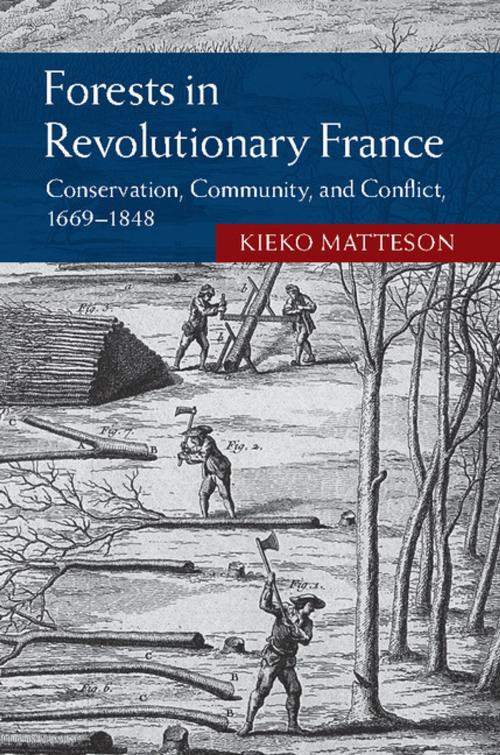Forests in Revolutionary France
Conservation, Community, and Conflict, 1669–1848
Nonfiction, History, Renaissance, European General| Author: | Kieko Matteson | ISBN: | 9781316234440 |
| Publisher: | Cambridge University Press | Publication: | April 16, 2015 |
| Imprint: | Cambridge University Press | Language: | English |
| Author: | Kieko Matteson |
| ISBN: | 9781316234440 |
| Publisher: | Cambridge University Press |
| Publication: | April 16, 2015 |
| Imprint: | Cambridge University Press |
| Language: | English |
This book investigates the economic, strategic, and political importance of forests in early modern and modern Europe and shows how struggles over this vital natural resource both shaped and reflected the ideologies and outcomes of France's long revolutionary period. Until the mid-nineteenth century, wood was the principal fuel for cooking and heating and the primary material for manufacturing worldwide and comprised every imaginable element of industrial, domestic, military, and maritime activity. Forests also provided essential pasturage. These multifaceted values made forests the subject of ongoing battles for control between the crown, landowning elites, and peasantry, for whom liberty meant preserving their rights to woodland commons. Focusing on Franche-Comté, France's easternmost province, the book explores the fiercely contested development of state-centered conservation and management from 1669 to 1848. In emphasizing the environmental underpinnings of France's seismic sociopolitical upheavals, it appeals to readers interested in revolution, rural life, and common-pool-resource governance.
This book investigates the economic, strategic, and political importance of forests in early modern and modern Europe and shows how struggles over this vital natural resource both shaped and reflected the ideologies and outcomes of France's long revolutionary period. Until the mid-nineteenth century, wood was the principal fuel for cooking and heating and the primary material for manufacturing worldwide and comprised every imaginable element of industrial, domestic, military, and maritime activity. Forests also provided essential pasturage. These multifaceted values made forests the subject of ongoing battles for control between the crown, landowning elites, and peasantry, for whom liberty meant preserving their rights to woodland commons. Focusing on Franche-Comté, France's easternmost province, the book explores the fiercely contested development of state-centered conservation and management from 1669 to 1848. In emphasizing the environmental underpinnings of France's seismic sociopolitical upheavals, it appeals to readers interested in revolution, rural life, and common-pool-resource governance.















